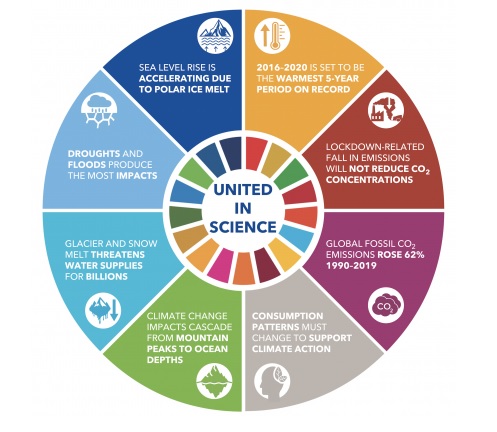Lockdown and economic slowdown in many countries have only slightly mitigated the further increase in greenhouse gas emissions. According to the latest report coordinated by the WMO, the world is still ‘not on track to meet agreed targets to keep global temperature increase well below 2 °C or at 1.5 °C above pre-industrial levels’.
In its United in Science 2020 report, the World Meterological Organization (WMO) estimates that in 2020, CO2 emissions will decline by 4% to 7% compared to 2019 levels. Even though in April, at their lowest point during the Covid-19 confinement policies, global CO2 emissions dropped by around 17% compared to 2019, by early June, daily emissions returned to about 95% of 2019 levels.
As a result, the concentration of CO2 and other greenhouse gases (methane and nitrous oxide) in the atmosphere has seen further increases in 2020. This year’s emissions reduction will only slightly impact the rate of increase because of the very long lifetime of greenhouse gases. The WMO cautions: ‘Sustained reductions in emissions are required to stabilize global warming.’
